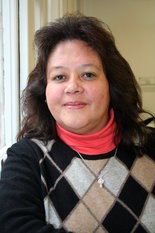Room: AUDITORIUM EUROPA
Date: Tuesday, 06 June 2023
Time: 10:15 - 11:30 CEST
Session code BP.1
Socio-economic aspects in circular economy
Gender and Social Equality in Bioenergy and Bioeconomy
Short Introductive summary
The social dimension is one of the three pillars of sustainability. The term “social” relates to human society and its members, social sustainability implies the fair distribution of benefits arising from developmental projects, and that dignity for human life is assured. Social sustainability assessment needs to be carried out along with assessment of other sustainability pillars (namely, environmental and economic) to deliver a comprehensive sustainability assessment. One of the key components of the social dimension of social sustainability is gender. Social issues related specifically to gender equity and energy (Sustainable Development Goal5 and SDG7 on energy) are still difficult to assess and apply. This paper presents a benchmarking of selected sustainability frameworks particularly focusing on gender equality and the assessment of social risks with the use of the Social Hotspot Data Base (HSDB) from different bioenergy and bioeconomy projects funded by the EU and a comparison with selected countries in the Global South. It focuses the assessment on gender dimensions and implications of it in bioenergy towards a just net zero development.
Keynote presentation
Presenter

Rocio DIAZ-CHAVEZ
Imperial College London, Centre for Environmental Policy
Presenter's biography
Dr Diaz-Chavez is a Senior Research Fellow at the Centre for Environmental Policy of Imperial College London since 2004. She was Deputy Director at SEI Think Thank in Kenya (2017-2022). She researches on sustainability assessment and deployment of bioeconomy, bioenergy, land use.
Biographies and Short introductive summaries are supplied directly by presenters and are published here unedited
Co-authors:
Session reference: BP.1.2
